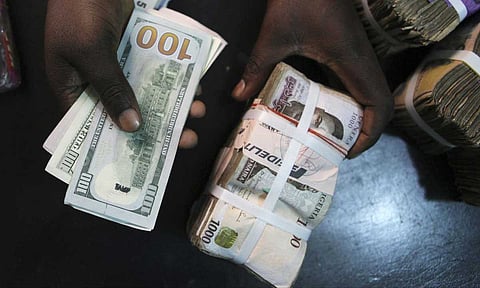

The Nigerian naira has witnessed a significant depreciation against the United States dollar, reaching N1,300 at the official foreign exchange market on Tuesday, marking a 5.3% decline from the previous rate, data from the FMDQ securities exchange revealed.
The recent exchange rate represents a stark contrast to the optimism among traders just days before, as the local currency had shown signs of strength, with projections of potentially trading below N1,000/$1 for the first time. However, the naira's decline came swiftly, with the latest drop coinciding with remarks made by the Central Bank of Nigeria (CBN) Governor, Yemi Cardoso. When questioned about the sudden drop in external reserves, Governor Cardoso emphasized that the bank's intention was not to defend the naira.
Market analysts and experts are closely monitoring the situation, attributing the naira's volatility to various factors including fluctuating oil prices, external economic pressures, and policy decisions by the central bank. The CBN's stance on currency defense is also under scrutiny, with stakeholders assessing its implications for Nigeria's economic stability and investor confidence.
As the naira continues to face downward pressure against the dollar, stakeholders are calling for clarity and proactive measures from regulatory authorities to address the challenges facing the currency and safeguard the country's financial integrity. The evolving situation underscores the need for prudent monetary policies and strategic interventions to stabilize the foreign exchange market and promote sustainable economic growth.
As stakeholders await further developments, attention remains focused on how regulatory authorities will navigate the complex dynamics influencing the exchange rate and chart a course towards economic resilience and prosperity.
